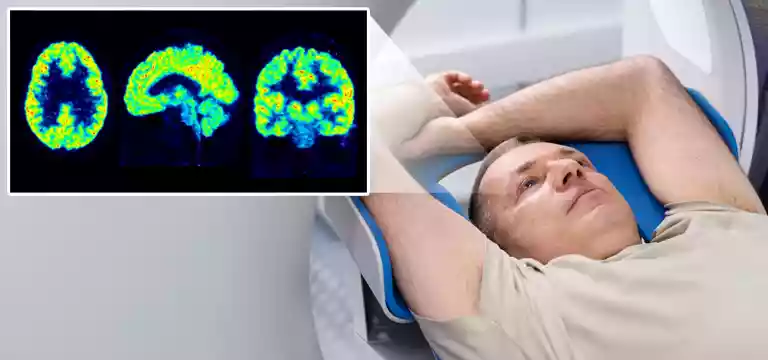
In today's rapidly advancing medical field, diagnostic imaging plays a crucial role in providing accurate and timely diagnoses. Among the various imaging techniques available, Positron Emission Tomography (PET) scans have...
In today's rapidly advancing medical field, diagnostic imaging plays a crucial role in providing accurate and timely diagnoses. Among the various imaging techniques available, Positron Emission Tomography (PET) scans have emerged as a powerful tool in clinical diagnostics. This article aims to provide a comprehensive review of the clinical applications of PET scans, highlighting their importance in various medical specialties.
Definition and Principles of PET Scans:
PET scans involve the use of radioactive tracers to visualize and assess the metabolic and functional processes within the body. By detecting the emission of positrons, PET scanners generate detailed images that enable healthcare professionals to evaluate organ function and detect abnormalities.
PET Scan Procedure
Before undergoing a PET scan, patients need to prepare by fasting and avoiding certain medications. During the procedure, a small amount of radioactive tracer is injected into the patient's vein, followed by a waiting period to allow the tracer to distribute throughout the body. The patient is then positioned in the PET scanner, which captures the emitted signals and produces images for analysis.
Common Clinical Applications of PET Scans
Cancer Diagnosis and Staging
PET scans have revolutionized cancer diagnosis by providing valuable information about the location, extent, and behavior of tumors. The ability of PET scans to detect metabolic changes in cancer cells allows for early detection and accurate staging of various cancers, including lung, breast, colorectal, and lymphoma.
Oncology Treatment Monitoring
In addition to diagnosis, PET scans play a crucial role in monitoring treatment response in cancer patients. By repeating PET scans throughout the course of treatment, healthcare professionals can evaluate the effectiveness of therapies, modify treatment plans accordingly, and track tumor progression or regression.
Neurology and Psychiatry
PET scans have proven invaluable in the field of neurology, enabling researchers and clinicians to study brain function and identify abnormalities. PET imaging assists in diagnosing neurodegenerative disorders such as Alzheimer's disease and Parkinson's disease, as well as psychiatric conditions such as schizophrenia and depression.
Cardiology
PET scans offer unique insights into cardiac function and help evaluate heart conditions with exceptional precision. By assessing myocardial viability, cardiac perfusion, and metabolism, PET imaging aids in diagnosing and managing coronary artery disease, myocardial infarction, and other cardiovascular disorders.
Infectious Diseases and Inflammation
The ability of PET scans to detect metabolic changes extends beyond cancer. PET imaging is also valuable in diagnosing and monitoring infectious diseases such as tuberculosis and human immunodeficiency virus (HIV). Additionally, it aids in assessing inflammation and autoimmune conditions, providing crucial information for treatment planning.
Advantages of PET Scans
High Sensitivity and Accuracy
PET scans can detect subtle metabolic changes even before structural abnormalities are visible through other imaging modalities, allowing for early diagnosis.
Non-invasive Procedure
PET scans are generally safe and non-invasive, reducing patient discomfort and the need for invasive diagnostic procedures.
Limitations of PET Scans
Limited Spatial Resolution
PET scans may have lower spatial resolution compared to techniques such as computed tomography (CT) or magnetic resonance imaging (MRI).
Availability and Cost
PET scanning technology requires specialized facilities and resources, making it less accessible compared to other imaging modalities.
Why Ganesh Diagnostics is the Best Diagnostic Center for PET Scans
Introduction to Ganesh Diagnostics
Ganesh Diagnostics is a renowned diagnostic center committed to providing high-quality and reliable diagnostic services. With state-of-the-art facilities and a team of experienced healthcare professionals, Ganesh Diagnostics is at the forefront of diagnostic imaging in India.
Wide Availability and Convenience
Ganesh Diagnostics stands out for its extensive network of branches across Delhi, including Rohini, Hari Nagar, Firozabad, Mangolpuri, Model Town, Nangloi, and Yamuna Vihar. This wide availability ensures convenience and accessibility for patients seeking PET scans.
Multiple Panels Availability
Ganesh Diagnostics offers a comprehensive range of panels, allowing patients to undergo multiple tests and screenings in a single visit. This integrated approach ensures a holistic evaluation of health, enabling better management of medical conditions.
Conclusion
In conclusion, PET scans have revolutionized clinical diagnostics by providing valuable insights into various medical specialties. The versatile applications of PET imaging in cancer diagnosis, neurology, cardiology, infectious diseases, and inflammation make it an indispensable tool for healthcare professionals.
When it comes to PET scans, Ganesh Diagnostics emerges as the best diagnostic center in India. With its wide availability, 24/7 CT scan services, and comprehensive diagnostic panels, Ganesh Diagnostics ensures accurate and reliable PET scan results. Choose Ganesh Diagnostics for your PET scanning needs and experience excellence in diagnostic imaging.
FAQs
What is the role of PET scans in cancer diagnosis?
PET scans play a crucial role in detecting and characterizing tumors, aiding in early diagnosis and accurate staging. Visit Ganesh Diagnostics for reliable PET scans: Our Services
How do PET scans help in monitoring cancer treatment?
PET scans are used to assess treatment response, track tumor progression, and evaluate treatment efficacy.
Can PET scans detect neurodegenerative diseases?
Yes, PET scans are instrumental in diagnosing neurodegenerative diseases such as Alzheimer's and Parkinson's.
Are PET scans useful for evaluating heart conditions?
Absolutely! PET scans help evaluate heart function, myocardial viability, and assess coronary artery disease.
How do PET scans aid in diagnosing infectious diseases and inflammation?
PET scans aid in diagnosing and monitoring infectious diseases and assessing inflammation and autoimmune conditions.









